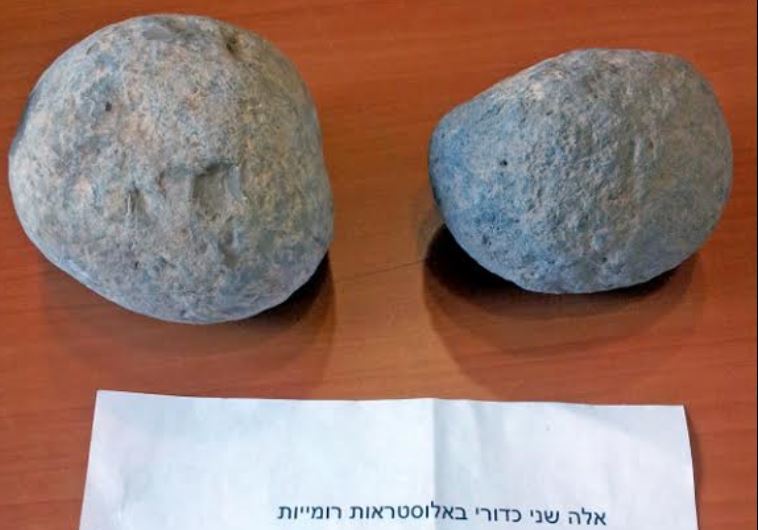Decades after theft, antiquities returned with note: They brought me nothing but trouble
2,000-year-old sling stones left with anonymous note in courtyard at Beesheba museum.
 ballista stones from the Early Roman period(photo credit: DR. DALIA MANOR, MUSEUM OF ISLAMIC AND NEAR EASTER)Updated:
ballista stones from the Early Roman period(photo credit: DR. DALIA MANOR, MUSEUM OF ISLAMIC AND NEAR EASTER)Updated: